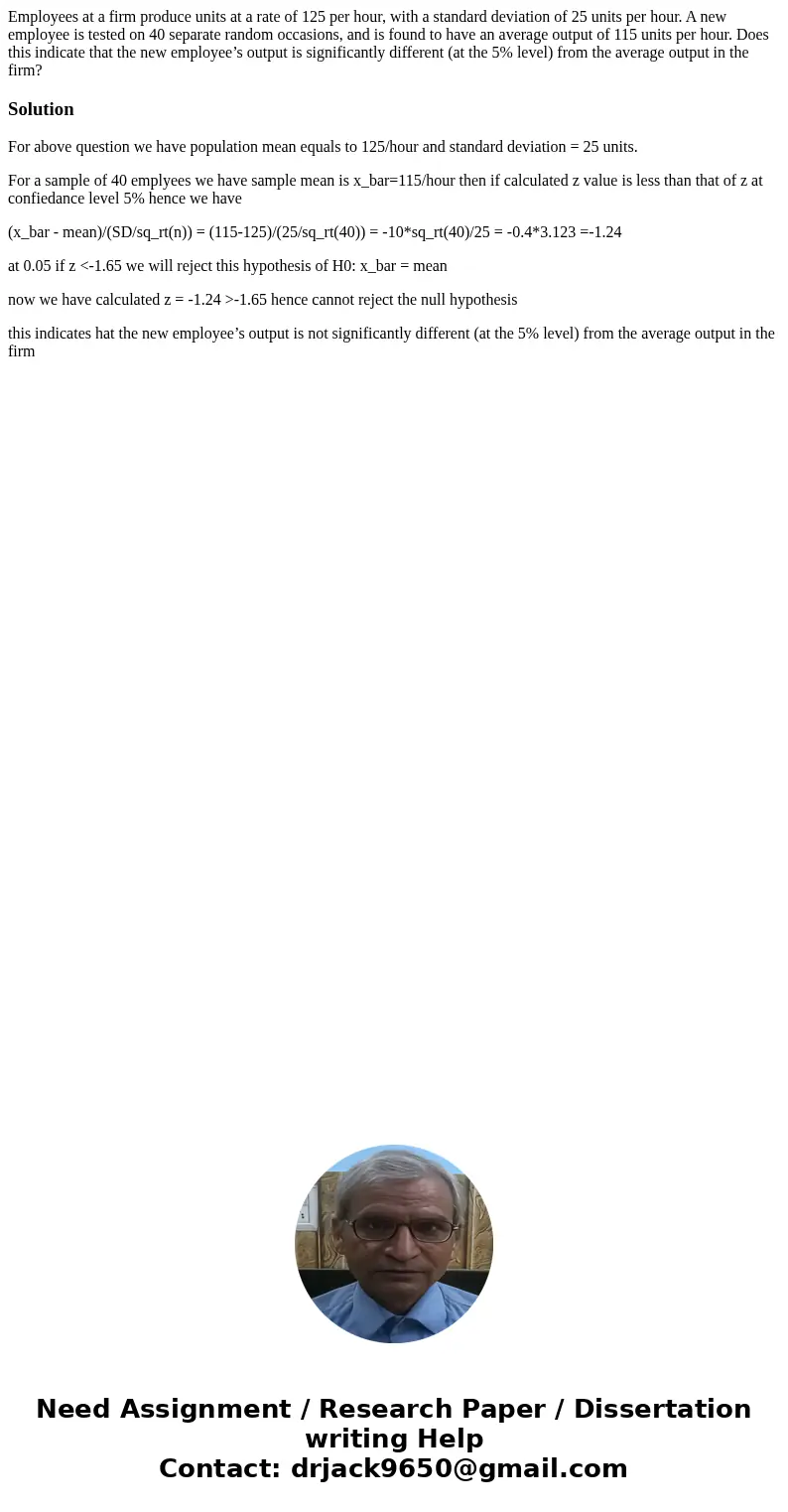Employees at a firm produce units at a rate of 125 per hour
Employees at a firm produce units at a rate of 125 per hour, with a standard deviation of 25 units per hour. A new employee is tested on 40 separate random occasions, and is found to have an average output of 115 units per hour. Does this indicate that the new employee’s output is significantly different (at the 5% level) from the average output in the firm?
Solution
For above question we have population mean equals to 125/hour and standard deviation = 25 units.
For a sample of 40 emplyees we have sample mean is x_bar=115/hour then if calculated z value is less than that of z at confiedance level 5% hence we have
(x_bar - mean)/(SD/sq_rt(n)) = (115-125)/(25/sq_rt(40)) = -10*sq_rt(40)/25 = -0.4*3.123 =-1.24
at 0.05 if z <-1.65 we will reject this hypothesis of H0: x_bar = mean
now we have calculated z = -1.24 >-1.65 hence cannot reject the null hypothesis
this indicates hat the new employee’s output is not significantly different (at the 5% level) from the average output in the firm

 Homework Sourse
Homework Sourse